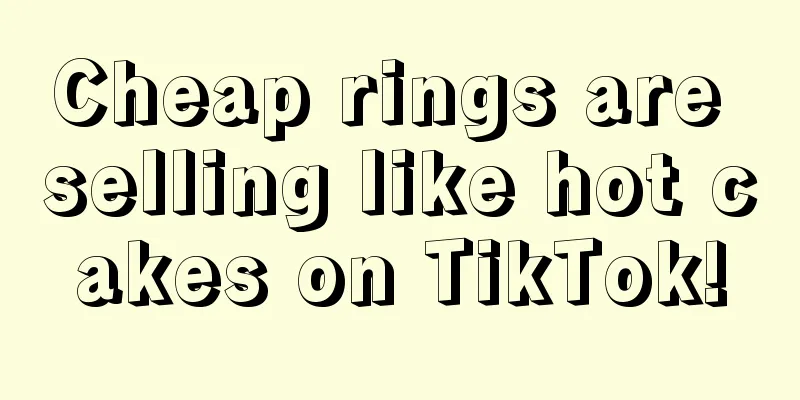Overseas short video marketing: How to calculate audience engagement rate?

With the rise of social media and digital marketing, overseas influencer marketing has become a very important way for many brands to promote their products and services. This has created favorable conditions for overseas brands to reach more audiences, but it has also put higher demands on the selection of influencers. There are many different criteria for evaluating influencers. Among them, evaluating an influencer’s engagement rate can be a preliminary indicator of how well a brand’s collaboration with the influencer performs among his or her fan base. So, how do you calculate user engagement rate? What is a normal engagement rate for different social media platforms? 01 What does social media engagement rate mean?1. What is the participation rate?Engagement rate is a measure of how much your audience interacts with your content on online platforms. This metric is often used to measure the effectiveness of social media marketing and digital advertising campaigns. Rather than focusing solely on followers or views, engagement rate looks at the number of actions your audience takes, such as likes, comments, or shares. A high engagement rate indicates that your content resonates well with your audience, generating more interactions and driving more actions. It helps you evaluate the effectiveness of published content and make informed decisions about your marketing strategy. 2. Why should I track engagement rate? What makes it so important?1) It helps evaluate content quality Engagement rate can help you understand how well your content resonates with your target audience. When you track this metric, you can determine which content generates more user interaction. This will help you adjust your content strategy to create more relevant posts. 2) It helps analyze the effectiveness of each social media platform Different platforms may generate different engagement rates. For example, you may have higher engagement on Instagram and lower engagement on Twitter. Tracking engagement rates across platforms will help you determine which marketing channels you should focus on for your brand. 3) It helps understand the interests and behaviors of your audience For example, you might find that your audience is highly active when you focus on a specific topic and they don’t engage with other content. Analyzing the types of content that have the most interactions will allow you to understand what appeals to your audience and tailor your future content accordingly. 4) Engagement rate is a key indicator of marketing success It goes beyond metrics like follower count and shows whether marketing campaigns are driving meaningful engagement and potential conversions. 5) Calculate the effectiveness of ad spending through engagement rate A high engagement rate on your sponsored Facebook posts is a sign that your ads are valuable. 6) Compare your engagement rate to your competitors’ to understand where you stand in the market It helps you identify the areas where you excel and the areas where you need to improve to stay ahead of the competition. 02 How to calculate engagement rate? 7 important formulasCommon engagement rate metrics: Instagram: Likes, comments, shares, saves, private messages, profile visits, Story sticker clicks, clicks on the “Get Directions” button, use of branded hashtags Facebook: Reactions, Clicks, Comments, Shares, Private Messages Twitter: retweets, mentions, comments, use of branded hashtags Pinterest: Likes, Comments, Pins LinkedIn: Likes, Comments, Retweets, Share via Private Message, Custom Button Clicks TikTok: Like, Comment, Save, Share YouTube: Like, Comment, Share, Download, Save 1. Instagram1) Calculation formula Engagement rate (%) = (Total engagement / Total followers) * 100 For example, if a post receives 500 likes and 100 comments, and your Instagram account has 10,000 followers, the engagement rate for that post would be: (500 + 100) / 10,000 * 100 = 6% 2) Good participation rate A good engagement rate on Instagram is 3% to 6%. Engagement rates above 6% are excellent, especially for larger accounts with lots of followers. 2. Facebook1) Calculation formula Engagement Rate = (Total Engagements / Total Page Followers) * 100 For example, if your Facebook page has 50,000 followers and a post receives 500 reactions, 100 comments, and 50 shares. The engagement rate for that post is: (500 + 100 + 50) / 50,000 * 100 = 1.3% 2) Good participation rate A good engagement rate for a Facebook page is around 0.5% to 1.5%. 3. Snapchat1) Calculation formula Snapchat Engagement Rate = (Total Engagements / Total Followers) * 100 For example, if your Snapchat account has 20,000 followers and your Snap receives 200 views, the engagement rate would be: (200 / 20,000) * 100 = 1% 2) Good participation rate If your engagement rate is 1% to 3%, you are doing well on the platform. 4. YouTube1) Calculation formula YouTube Engagement Rate = (Total Engagements / Total Subscribers) * 100 Let's say you have a YouTube channel with 10,000 subscribers, and a video receives 1,000 likes and 50 comments. Your YouTube engagement rate is: (1,000 + 50) / 10000 * 100 = 10.5% YouTube generally has lower engagement rates due to the passive nature of video content consumption. For example, many viewers may enjoy your content, but they may not leave a comment. 2) Good participation rate A good YouTube engagement rate is around 0.5% to 2%. However, channels with a lower subscriber base can achieve much higher engagement rates. 5. TikTok1) Calculation formula TikTok Engagement Rate = (Total Engagements / Total Followers) * 100 If you have 500,000 followers on TikTok and your video gets 100,000 views, 20,000 likes, and 5,000 shares. To calculate engagement, do the following: (100,000 + 20,000 + 5,000) / 500,000 * 100 = 25% 2) Good participation rate TikTok is known for its high engagement rates, which range between 10% and 20%. Engagement rates over 20% are considered excellent. 6. X (formerly Twitter)1) Calculation formula X Engagement Rate = (Total Engagements / Total Followers) * 100 For example, if you have 50,000 Twitter (X) followers, and a tweet (published now) receives 500 likes, 100 retweets, and 50 replies. You can calculate your engagement rate like this: (500 + 100 + 50) / 50,000 * 100 = 1.3% 2) Good participation rate A good engagement rate for Twitter (now X) is 1% to 3%. Engagement rates over 3% are considered excellent. X User interactions are mostly real-time. Therefore, engagement rates are likely to be higher compared to other platforms. 7. LinkedIn1) Calculation formula Engagement rate (%) = (Total engagement / Total followers) * 100 Let's say you're a company with 10,000 followers on LinkedIn, and one of your posts gets 50 likes and 20 comments. The engagement rate for that post is: (50 + 20) / 10,000 * 100 = 0.7% 2) Good participation rate Due to its highly serious and professional nature, LinkedIn generally has lower engagement rates compared to other social platforms. A good engagement rate on LinkedIn is around 0.2% to 0.6%. Rates above 0.6% are considered excellent. Remember: engagement rates vary widely between different types of accounts, so it’s important to compare your KPIs to similar accounts in your industry. This will help you better assess whether you’re performing well. Author: Inpander, Source: WeChat public account "Inpander Going Global" |
>>: Is printer sharing a profitable business?
Recommend
Interpretation of several important updates of Xiaohongshu in recent days
This article provides an in-depth interpretation o...
6000 words, take you to tear open the jewelry traffic of Xiaohongshu
This article deeply analyzes the growth trend of X...
Can the two parent companies of Amazon be merged? What are the benefits of Amazon's merger?
In Amazon operations, merging and splitting varian...
20 trends and thoughtful suggestions for brands in 2023
2023, the new year's brand forecast is here! T...
Are XR and short videos mutually reinforcing or counterproductive?
In recent years, the collision and integration bet...
Messi's live broadcast on Taobao, no goods, just ads
Messi appeared as a guest in Li Xuanzhuo's liv...
8 sentences worth collecting in April!
April has passed unknowingly and we have ushered i...
Celebrities with more than 500,000 followers must use their real names, and the short video industry is experiencing another "earthquake"
With the implementation of the "front-end rea...
What are the requirements for opening a Shopee store? How much does it cost?
The cross-border e-commerce industry is still very...
Can the popular ChatGPT help self-media people write articles? We tried it for you
This article starts from the new generation of con...
Don’t do Mother’s Day marketing! Unless you let “love and gratitude” enter her alveoli
The author of this article talks about many exampl...
I used a new account and created a hit video with 227.5w views. What did I do right?
How did a new account achieve a hit with 227.5k vi...
Is Amazon related because of a single factor? Why is it related?
On the Amazon platform, both consumers and merchan...
What should I do if Pinduoduo has no visitors without driving? How can I increase traffic?
As the traffic on Pinduoduo's platform grows, ...
A comprehensive analysis of the popularity of Zibo barbecue and the steps and system of brand hot spot marketing
The author of this article uses the classic framew...









